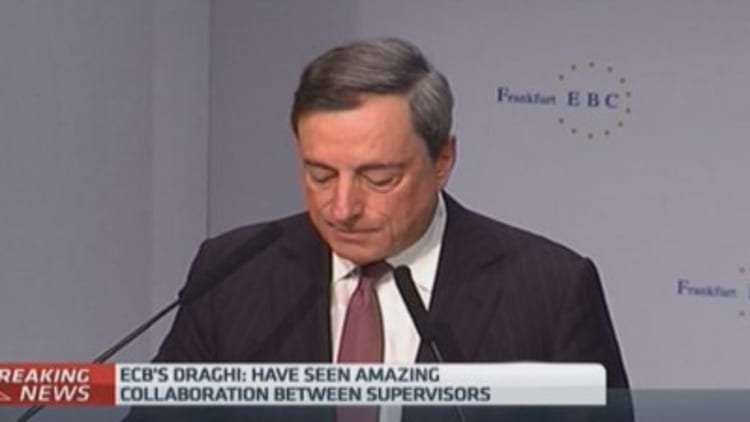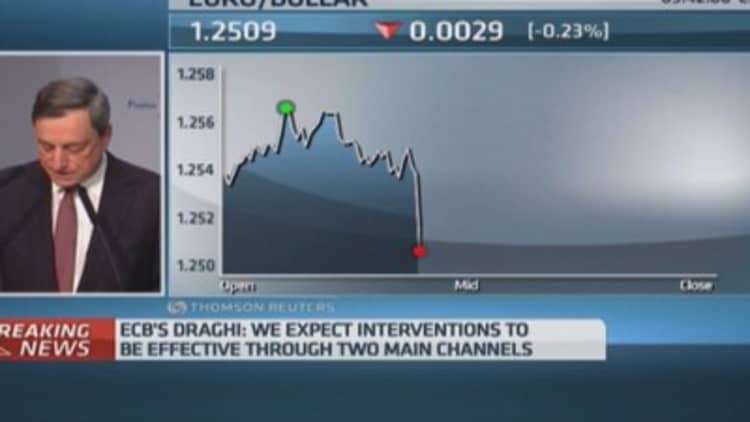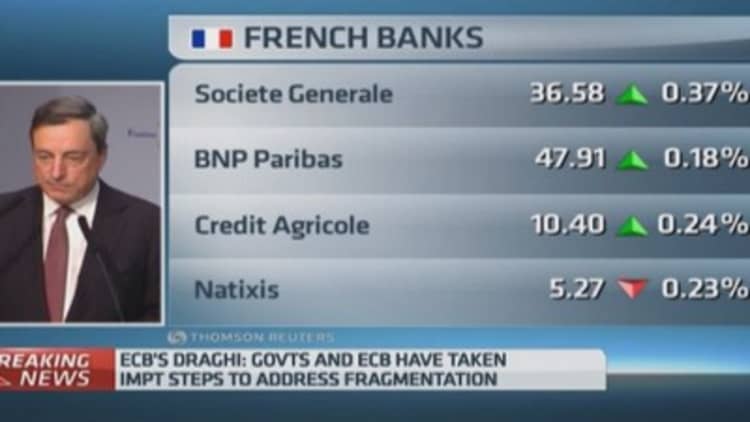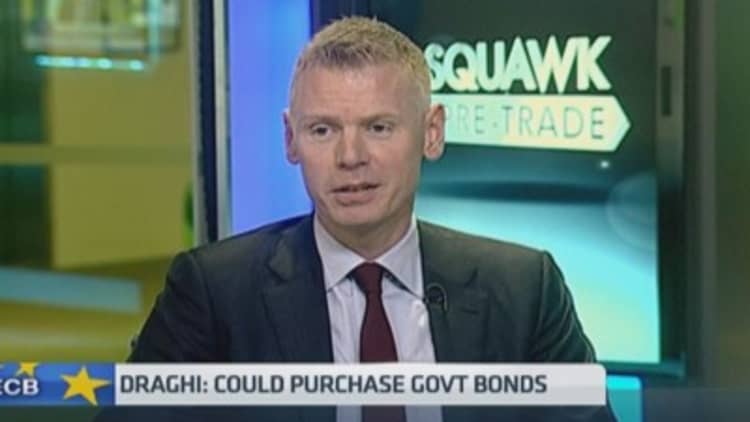


The euro zone economy is likely to remain stagnant in the short-to-medium term and the European Central Bank stands ready to act fast to combat low inflation, President Mario Draghi said on Friday.
"A stronger recovery is unlikely in the coming months," Draghi said in an opening speech at the Frankfurt European Banking Congress, referring to the latest flash euro area Purchasing Managers Index (PMI).
The PMI, published on Thursday, showed that new orders in the euro zone fell this month for the first time since July 2013. The composite index read 51.4—below forecasts and below October's final reading of 52.1.
The ECB has launched a slew of measures to ease credit conditions in the region in order to boost growth and combat dangerously low inflation. These include cutting interest rates to record lows and announcing plans to purchase covered bonds and asset-backed securities (ABS).
Read More ECB's Draghi: Buying sovereign bonds is an option
The latest reading for headline inflation in the euro zone was 0.4 percent—well below the close to 2 percent level targeted by the ECB and down from 0.9 percent a year ago.
"The inflation situation in the euro area has also become increasingly challenging," said Draghi on Friday. "We see that it has been essential that the ECB has acted —and is continuing to act—to bring inflation back towards 2 percent."
Speculation has been rife as to if and when the ECB will start a U.S -style sovereign bond-buying program, as a further measures to ease monetary conditions.

On Friday, Draghi reiterated that the ECB was committed to expanding its asset purchase program -- a move that many market-watchers expect could include euro zone government debt.
"We are committed to recalibrate the size, pace and composition of our purchases as necessary to deliver our mandate," he said.
Read MoreWhy the global economy could be in trouble (again)
"This is why the Governing Council has tasked ECB staff and the relevant Eurosystem committees with ensuring the timely preparation of further measures to be implemented, if needed."
However, Draghi may face opposition from more hawkish members of the ECB's Governing Council, including Jens Weidmann, the president of Germany's central bank. Weidmann has previously warned of the "dangerous path" that quantitative easing (QE) would lay. He will speak at the European Banking Congress on Friday.
Phillippe Legrain, former economic advisor to ex-president of the European commission, Manuel Barroso, said that markets were overestimating the possibility of QE taking place.
"There is deep opposition to that and in the context of an ECB which is very sensitive to German opinion... I don't think that QE in the bold way that is necessary is going to be carried out in the euro zone," Legrain told CNBC before Draghi spoke.

